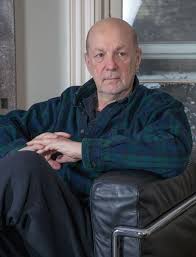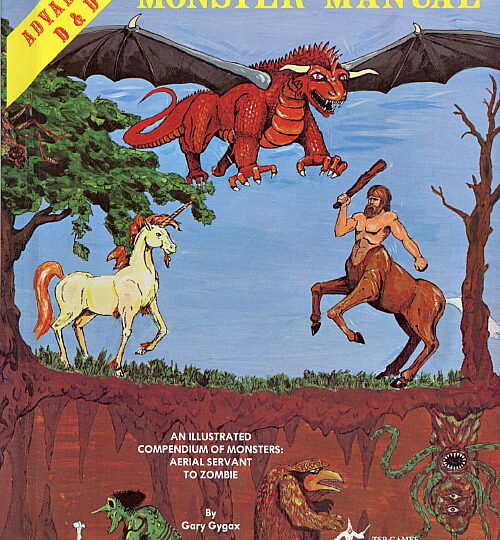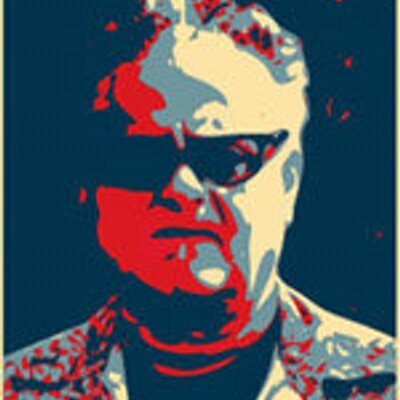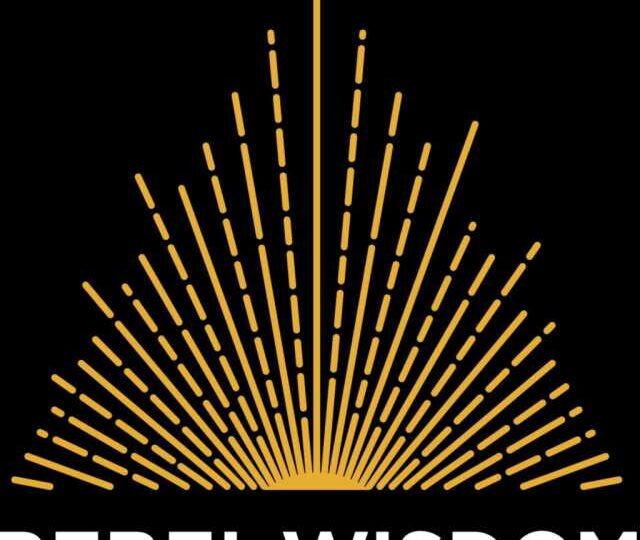
Westerns and the Self
I first heard about Rudy Wurlitzer and his 1969 novel Nog from a Village Voice article by Gary Indiana. Indiana’s description of Wurlitzer’s explosive first book, not to mention the haunting photograph of the somewhat haunted looking author, set me hunting immediately. At once of its era and of none, Nog is a funny and unsettling expression of place and placelessness, a hippie-Beckett drift trip that sucks you into the empty undertow of the American quest, longhair-style. In Nog, Wurlitzer tries to write the dissolved and dissolute self, and he does so from within the hedonistic abyss that lurked at the heart of the freak counterculture. Think of Brautigan’s In Watermelon Sugar with existential teeth.
Given how aggressively Wurlitzer has explored the dismantling of the self in his early writing, it is perhaps appropriate that his career since Nog has been somewhat fragmentary, marked with dangling threads and very different modes of scribbling. After Nog, he wrote a couple more experimental post-apocalyptic gems (Quake and Flats) along with the screenplays for Monte Hellman’s flawless Two Lane Blacktop and Peckinpah’s great Pat Garrett and Billy the Kid. More screenplays and books followed. Like many in his generation, Wurlitzer’s furtive perignations at the edge of consciousness also led him to the seeker trail, and especially to Buddhism, whose insights resonate throughout his work. His 1995 spiritual memoir Hard Travel to Sacred Places is one of the fiercest and most necessary books in the literature of American Buddhism.
In 2008, Wurltizer published The Drop Edge of Yonder, a hilarious, cinematic, and shamanic revisisioning of the Western whose tall and immensely entertaining tale manages to be both absurd and utterly wise. After reading my review of the book, Wurlitzer and I struck up an email correspondence. This evolved into the following interview, which is culled from many conversations over the course of many months.
ERIK: Despite being about the evaporation of personality, Nog makes me very curious about the personal journey that led to the book.
RUDY: When I wrote Nog, I was drifting away from NYC, where I was living on East 10th Street, lower east side, after a year or two in France and Spain. Hanging out at the Five Spot and various dim pubs, spending time with Beat cronies and floozies. Then onwards, out of town. Sniffing the promise of open road, the dumb romance of the frontier, or so I thought. After zig zagging across the country, I ended up on the west coast with no further ‘frontier’ to relieve or rest my confusions. Living in motels with a little coin that a great Aunt left me in her will. Removing myself from the ‘Wurlitzer’ lineage of European culture with all its robber baron permissions and exclusions.
I lived or tried to live, or not live, around and in the Haight, and under the bridge, then on the coast of northern California in a shack with an equally lost girlfriend, drifted back down to Stinson Beach, holed up, wrote a few lines, then shifted to LA, wrote more or less on and off the road, then back and forth to NYC and various sub-lets, hung out with Claes Oldenburg, found myself in a few ‘happenings’ with Claes and Rauschenberg, discovered the mind blowing explosions of Jackson Pollack, the cool play of Jasper Johns, the break-out art world, made a short film with Claes on a river, took acid, became lost, then more lost. So lost I didn’t know I was lost.
E: There was so much great culture going on in that era. What sources were your drawing from?
I was encouraged by such riff artists as Ornette Coleman, Miles Davis, John Coltrane, Thelonious Monk, etc. On the language side of the room, the permissions and radical cut ups of Wild Bill Burroughs, Ginsberg, Leroi Jones, Kerouac, the break out rock of Dylan, as well as the straight-on laments and personal permissions of blues singers such as Mississippi John Hurt, Robert Johnson, Leadbelly. They gave me the courage to slide into my own miasma, and expose what ‘is’, beyond good and bad, never mind evil, rather than what might be or what was, or should be—a pull back from conceptual omniscience, at the risk of solipsism and nihilism. Anything to shift the imprint of cultural self into a dissolve towards the play and possibilities of ‘self-no self.’
ERIK: How do you locate your own development in relation to ‘the sixties’?
RUDY: A good part of me came to age in the fifties, at the height of the postwar empire, a time full of empire-flexing dualities, in my case with enormous comforts and unconsciously false confidences and permissions to ramble like a privileged tourist, as if there was always a safety net left behind. Oh were that it was so, then and now.
When the tsunami of the sixties roared down, one was given permission and even encouraged to explore opposites, the ‘freedoms’ or the myths presented thereof. This unleashed traumatic furious seizures into all sorts and layers of habitual tendencies, including the fixations and traps of the conceptual mind, the external ‘self,’ and traditional story telling.
Nog seems to embrace and descend into an exploration of the first person, of its given omniscience and faith in language. Once given this openness and permission to enter the unknown, one—or at least me, or what was left of ‘me’—became a desperate seizure of surviving open-ended space before thoughts or concepts or projections or history or traditional education or information or linear habits of ‘being’ and ‘doing’ enter the room.
What is or was this ‘freedom’ now but a definition of suffering and thus inevitably of hell? And where was the way out? And where is it now? Nog was a desperate attempt to invent a way out, which led to another set of delusions, and so on, further complicated by the end of the American ‘frontier’, the sense that always before there was a promise and a place to go. Our myth of origins. But then, once encountered, there was nowhere to go but inside, or so it seemed, which created a desperate need to invent a way out of the terror, a grasping for safety or definition, a map, even if invented, even as memory of what once was, or where one came from, dissolved. No place to run or hide, oh traveler. A kind of hell world representing an out-of-control display of the discursive mind. So one plunges into an embrace of loss as a way out, then back to the outside with furious demonstrations, sexual impulses reaching towards unity, which leaves more futility in their churning wake, and more confusion, more suffering, and, of course, drugs as relief, but for me that solution wasn’t a major player, although it might seem so in the book.
But I can dimly see that this need to destroy old narratives and imprints, to dismantle or deconstruct the comfortable records of one’s journey, represented a kind of clearing out, a preparation for emptiness: an invitation towards a more meaningful expression, and maybe even a faith in the healing properties of language, if not a deliverance towards some kind of redemption, however romantic.
ED: How did your thematic obsessions lead you to the genre of the Western?
RUDY: Somewhere in the early seventies I wrote a piece for an obscure literary magazine. The title was: “The First Two Pages of Louis L’Amour.” I was enamored with Louis L’Amour’s first two pages, which were almost always about a man riding through the vast phenomena of open Western space. A rider, riding, without intention, into emptiness, with no beginning, no end or assigned direction. Off the map. East equal to West or South or North, the rising sun usually behind, the setting sun in front, leaving civilization behind, riding always within the mysterious rhythms of unannounced form and emptiness. The open range, silent and spacious, the rider never having a particular name or identity or defined boundaries, inside or outside. So it was just riding, always riding. But then, inevitably, after these introductions, Louis L’Amour, needing to hook the reader, would set the trap of ‘self’, the rider finding himself inside the entertaining and seductive prisons of plot, character and story, to what James Bugental calls the ‘self-and-world construct system.’ And so inevitably the reader would be squeezed and manipulated into a grid of good and evil Judeo-Christian myths that so mark the Legends of the Old West.
E: How did you come to write the screenplay for a Peckinpah film?
RUDY: After dissembling and deconstructing the narrative voice that made up Nog, I was asked by Monte Hellman, who had read and liked the novel, to totally rewrite a conventional script about ‘cars’ and racing—Two Lane Blacktop. The offer was appealing, not just because I needed to make some coin, which I certainly did, but also because I barely knew a car from a cow, and certainly not the inner workings of any machine. So that became for me an innocent ‘road to nowhere’ process, a rider riding, a driver driving, a kind of ‘tone poem’ that sought to pull the rug out from underneath winners and losers, or beginnings and ends. The race itself. The phenomena of ‘moving on’. And then, as fate would have it, right after that experience a producer asked me to write a western. Who could turn down the opportunity of working on a western?
Aside from a few turns in the Chateau Marmont in L.A., I was able to write full out in my shack in Cape Breton, Nova Scotia, with no studio notes to deal with. It was a freeing experience, the opposite of what you have to deal with today with all the usual sales people crowded into the room, the pitches, D girls, agents, money fears, commercial imprints etc. In the early seventies, there were still a few marginal individuals around willing to make fools of themselves: A writer, writing, pushing into his own emptiness, for it’s own sake. When Sam Peckinpah signed on, I was happy to saddle up and ride for the brand, which involved a different kind of emptiness, full of tension, wonder and, at times, drunken terror. The good guys and the bad guys ended up being the same breed. No difference.
Sam was the real deal, at least from where I sat behind the writing desk, that is, if he wasn’t throwing at knife at me. He was an outlaw who had made his bones fighting studio execs, avaricious money folks, entertainment mavens, no matter what. Sam was savvy, ornery and dangerous, surrounding his productions with old character actors used to riding and playing parts on the ‘outlaw trail.’ Those open-ended free floating days that offered such permissions didn’t last, and I spent more than a few decades thrashing around with a few other western scripts, trying to reclaim that old innocence, which was, of course, impossible.
E: One of those scripts was the origin of The Drop Edge of Yonder.
RUDY: Somewhere in the late seventies I wrote a script about a mountain man called Zebulon. That particular breed had haunted me for some time, along with the whole myth of the American frontier, past, present and future. The script was, and actually, still is, about a mountain man who gets shot in the heart after breaking out of jail, then becomes obsessed with saying a final goodbye to his family in the northwest. The script tracks him until he finally finds his wife and son, and then ends with his death and his body floating out to sea in a burning canoe. There’s also a back story where he’s pursued by a demented warden. And so on. At first Peckinpah was interested but then he became too drug-addled and finally passed over into the misty beyond. Then Hal Ashby thought he might take a crack and then, he too, sadly went belly up.
Finally, at the end of this loose trail, Jim Jarmusch expressed interest in the script and we spent a few weeks talking about it. But it became obvious that he wanted to take it into an entirely different direction and that it would be better if we went our separate ways, no hard feelings. A year or so later friends started calling about Dead Man, telling me how much it resembled certain elements of Zebulon. At first, being deeply wounded,I thought of suing, but then that sordid process seemed too toxic and futile, the film already having been done.
That said, the experience became a catalyst for me to write a book about Zebulon, to go deeper into my own obsessions with the story and that particular time in the west, as well as to somehow rescue the complex karma of the script and story, and maybe all of my strange relationships with the perilous complications of writing for the screen. The process of writing the book, at least for me, became a deeper and more profound exploration and journey than the script. So I ended up feeling rather perversely grateful for Jim’s unconscious rape and pillage.
ERIK: I like your work because it truly spans East and West, or at least Western. Not to lure you into a trap of self, but do you consider yourself a Buddhist?
RUDY: Sure, I do. I mean, ‘yes’, in the sense that I accept that ‘all thing are impermanent’, that ‘all emotions bring pain and suffering’, that ‘all phenomena are illusory’, that there is, somewhere, however far away, the possibility of ‘attaining’ a state beyond concepts. Of course, there’s a certain hesitancy in even trying to answer such a question, which mostly comes from an awareness of my own defilements and inadequacies, all of which makes me want to slide undercover, away from the trap of hiding out inside the false refuge ofan exclusive belief system, rather than embracing the vast endless explorations of a view that encourages the inseparability of ‘form and emptiness’.
ERIK: When did you hit the spiritual trail?
RUDY: My romances of freedom came from walking without knowing I was walking, seeing without seeing, tasting without tasting, stumbling through various crumbling cliffs and swamps; enthusiastic endeavors which involved barely keeping one nostril above patches of solipsistic nihilism or ecstatically deluded self-congratulations. Such are the perilous joys that so often define the seductions of hanging out in the god worlds of Hollywood, NY, Paris and even ‘off the grid’ Cape Breton, where I managed to build a shack at the edge of an eroding cliff. All these seductive stations inevitably led to yet more dazed confusions and exaltations. A feast of weird indulgences found me slipping in and out of whatever pauses or oases presented themselves, some of which led in the early days to the safe harbor presented by various spiritual teachers: Oscar Ichazo, Muktananda, Rajneesh. There were voyages to Peru, Cuba, India, Nepal, Bhutan, to name a few, which led me in turn to weeks and months of teachings, healings, meditations, shesshins, retreats and monasteries.
Finally, miraculously, I was mysteriously reeled away from some of my cruder illusions through the grace and humorous compassion of Dudjom Rinpoche, a Tibetan Lama I met through a poet friend who was studying Dharma in Nepal. Immediately Rinpoche greeted me ‘as I am’, and, barely knowing what I was doing, I found myself taking ‘refuge’ with him, kneeling on the floor of his little study inside his house in Kathmandu. In that one moment I was invited to learn about Buddha Nature, with its vast insight into the truth of impermanence, and to move towards a state beyond hope and fear, to an acceptance and embrace that everything, living and dead, is always in movement: burning, changing, dissolving. The Four Noble Truths was an invitation to walk on a path that promised a way out of ‘duality mind’, towards the possibility of inhabiting a state of seeing and experiencing the world without separation, to be what I was, even if it meant ‘being’ lost. Of course such an invitation was anything but a safety net. On the contrary, such investigations led to further questions, towards further doubts, more letting go, more breaking out from inherited beliefs and habits. As Samuel Beckett says: “I will go on. I can’t go on. I will go on.”
Which is not to say that I’ve learned or retained very much of anything worthwhile. In fact, as I grow older, I’m more and more aware of my own delusions and ignorance. I consider myself barely a beginner on the spiritual path. Given my deluded notions and inconsistently wayward ‘practice’ of Dharma over the years, and all the barnacles and opinions attached to my leaky fuselage, I find myself in some way less susceptible to awakening or realization than I was when I first began to contemplate Buddha Nature. As I look back, an effort that I mostly manage to avoid, I sense that I entered various ‘spiritual reception rooms’ with at least some of the innocence of ‘beginner’s mind.’ Now that I find myself more reclusive, as well as longer in the tooth, much of my self knowledge comes from worldly dilemmas: an awareness of the futility of writing narrative fiction, the ‘double or triple illusions’ of writing screenplays, the usual refrains that accompany egoic pursuits, along with, needless to say, the endlessly humbling frustrations that issue from the joys and tribulations of pursuing and, if unlucky, clinging to the mysteries of the opposite sex.
E: Are you working on another novel?
R: I’ve never been able to start scribbling something brand new the day after finishing a book, like some old pros seem to manage. It’s always taken me too long to find the urge to set forth once again, to invent yet another world with another language and another solution, a way of finding out what I think, or not think. After a long slump, I’m beginning to
suspect that a seed has been planted, and that just maybe, a move outside of self conscious ‘knowing’ has taken effect, after slouching backwards in the shadows of what’s left of my deluded mind. As Jung says somewhere: “whenever there is original work to be accomplished, an effort from which one recoils, when you doubt your strength or creativity or force of imagination, you move back to the source.”
All of which is to say that once again I seem to find myself on that long bench at the edge of the waiting room, as always a desolate inner world of half-conscious dreams and restless boredom. Finally, maybe, perhaps, one word is actually written, followed by yet another word and finally, against all the odds, the discursive mind becomes engaged and occasionally exhausted, a stupor which provides a temporary hook to keep going. And so it goes. Or doesn’t.
E: Do you see writing itself as a kind of spiritual activity?
RUDY: Given the current meltdown in the publishing world, along with the huge sea change that questions how and if people actually read books, it sometimes seems that, after all the gloom and doom, there might be a different way of going about the arduous process of putting one word after the other. If one isn’t lined up tin cup in hand, or on the runway of the ‘blockbuster grid’, there now exists less ambivalence about writing for its own sake. In this way, at this time, the act then becomes a kind of practice, however perverse and neurotic, a practice that involves watching the mind, a kind of beginner’s mind, and thus a non-judging witness to a displayed rush of good, bad and ugly delusions and convolutions.
Such journeys can occasionally uncover a few deeper shadows that lurk outside of the conventionally known, those strange slides down the off-ramp of culture that often, without knowing, risk an approach that lies outside the dense parameters of literary culture, or even memory. There are rhythms that tap-dance as if on a rubber raft between the dense sound of words and those deeper silences, with no hope at all for the solace of assigned identity, and which offer a chance to embrace the terror of becoming truly lost, and therefore of being truly found, except maybe by a few old time Gabby Hayes kind of mavericks and alienated language freaks still crouched in a corner of some decayed musty book-lined room, offering a tired salute to a phrase or two, between dozing off.
And that’s another old song that isn’t played so much anymore: the joy of sitting around the camp fire spinning yarns that ground one to the earth. Old time empowerments and lusty celebrations that provide meaningful information about how to survive the absurd drudgery of existence, that probe and celebrate change and uselessness.
ERIK: So what does your practice look like?
RUDY: If I write at all these days, I write mostly without expectation, or hope of confirmation. I know of course that lack of intention is basically impossible given the fact that one has to have a reader, at least one or two that might vaguely encourage one to rummage through charnel grounds of shadowy habits and inherited imprints, trying to shake loose and maybe find a story, any story, or the absence of one, anything at all, a turn of phrase, a brief lift-off, a sudden slide, a scream, any kind of relief from all those musty bardo fragments and deluded projections which contribute to worldly or, should I say, word sufferings.
Right now, as I ‘write’ to you without ‘attachment or aversion’, everything seems written in sand, at the mercy of the tide, so to speak, to be swept into the oblivion of Internet miasma, another way perhaps of acknowledging impermanence. (There’s gotta be a better way.) Despite all these hesitations, if one can still inhabit that free-floating zone that represents ‘nothing at all’, for let’s say, the length of a tv sit-com, without answering the phone, or replying to an e-mail, or having a slug of vodka, or any of a hundred distractions, then maybe, just maybe, one might experience the realization that everything and everyone is movement, that dying is being born and being born is dying.
But then, if there is no memory, resolution, completion, satisfaction, tall tales, whatever, then where is the writing, where is the book, where the completion? Not to mention, god forbid, the sly fun of being surprised, the adventure and escape from ornery conclusions, all the stuff that fills the entertainment bucket. Where is the way to forget, to ‘stop time’ in its tracks. If just for a moment.
So one starts, or has started, just like this, one word after the other, without coming or going, and hopefully, after a few sentences, that leads to a page or two, or even a chapter, all the smoke and mirrors become ‘real’, or real enough, alive, resonant with possibility. And all the other worries, considerations, doubts and useless ponderings, just disappear. As if they never existed in the first place. Just enough to keep the wind in your sails, even if there’s no wind.




